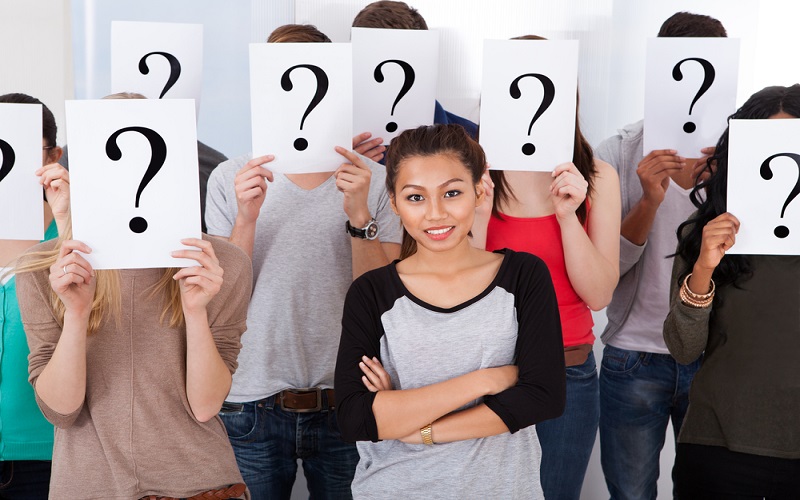You might not know, but Louise on our team is not originally Irish, she has put together some very uniquely Irish words and phrases that she found confusing at first, and you probably won’t hear anywhere else, but if you use these words and phrases in Ireland, you’re sure to sound like a local.
- “What’s the Story”
Irish people use this sentence as a means of “Hello”.
It can easily confuse people as you might think someone is asking you to elaborate on your own story, generally it’s not something that’s a question. - “Howye?” – how are you?
Very similar to number 1, often used as a greeting rather than a question. - “Fair Play” – That’s good
Usually this has nothing to do with a game.
It’s another term that Dubliners seems to use a lot, it is similar to the word ‘fair enough’, ‘well done’ or ‘great’. This one can easily become a habit word. - “Gas”- Funny
Irish people also uses this word instead of saying “you are funny” or “lol which stands for “laugh out loud”.
Honestly the sound of this word for me as a foreigner doesn’t even make sense to me. - “Craic”- Has various meanings
Pronounced ‘crack’, this word can be used in a variety of ways.
“What’s the craic?” is usually an opening line for a chat and means ‘what is happening?’.
It can also be used to describe someone, “He’s no craic” – he’s not much fun, or “she’s great craic!” – she’s a lot of fun to be around. - “Gas Craic” – a combination of the 2 above.
Simply put, it’s a way to describe someone or an event that is very funny. - “Are you okay”- Do you need some help?
Though it may sound a little too personal, it’s not always asking how you are, this phrase is often used in customer services to see if you would like some help or assistance. - “Yer man/ Yer one” Him/her
“Yer man” refers to an unknown man but part of a story. For example: “Yer man walked very fast”. “Yer one” refers to a woman in a story. “Yer one was laughing very loud”. - “Yoke”- An Object
A yoke refers to an object or item that is nearby. For example: “Pass me that yoke”.
If you don’t know what object they are talking about, it’s perfectly ok to ask for clarification. - “Massive”- Looking good
Though not used as much anymore, if you hear someone being called “massive” it usually means they are looking good. It has nothing to do with their size. Massive is often used in Dublin, but not so much outside the city. - “The jacks”- The Toilet
This phrase is most often used by Irish men to refer to going to the toilet. Most often heard in a pub. Don’t worry it’s not a secret location you are missing out on. - “You’re sound”- You’re a good person
This is a compliment used up and down the country. “He’s a sound guy”, and “that girl is sound”- it means the person is very nice and easy to get on with. - “Cop On”- To be more aware, or wise up.
This means that you’ve got the wrong idea about something. Sometimes following a bad decision. “You should cop on and go to class”.
It can also be used to gently tell someone you were joking, “ah, cop on, I was only messing”.
(Messing is an extra word you might hear, to mess around is to be playful or silly). - “Spuds”- Potatoes
Mostly used outside of Dublin, “Spuds” refers to the all-important potato. “I’m going to buy a bag of spuds”. - “I’m wrecked”- I’m tired
This can occur after a long day in class or when you have been exploring the city a lot. “Wrecked” means tired. “He looks wrecked” =” He looks tired”. - “The press”- The cupboard
If you have Irish roommates you may have discovered that a press is a cupboard, wardrobe or storage space in your kitchen. Every cabinet has the potential to be a press. - “Chips”– Large French fries
In some countries ‘chips’ are ‘crisps’, in Ireland they are large French fries. You will hear people asking for a burger and burger etc. Just to add confusion, in places like McDonald’s and Burger King we still call them French Fries. - “Ah sure look it”- It will be ok
This is an expression of sympathy for something that may have gone wrong. “I missed the train today”, “ah sure look it”. Often used after a minor incident. - “Go’way will ya”- I don’t believe it
This phrase is often used as an expression of disbelief. You will often hear this during sports games when something occurs. It can also be used when something funny has happened to an individual. “He fell off his chair”, “ah go’way will ya”. - “Doing the washing”- Cleaning clothes
When someone is “doing the washing” this will often involve the laundry. It can also mean washing the dishes following a meal if someone else has cooked. “You cooked; I’m doing the washing”. - “Rashers”– Bacon
It may not be the healthiest of breakfasts but rashers in Ireland refer to bacon, and it is an essential part of many Irish breakfasts, a full Irish breakfast, a breakfast roll – you will see sausages and rashers everywhere in the early morning. - “Slagging”- Making fun of someone
Slagging is to be making fun of someone. “He was slagging him about his hair”. You will find Irish people are very sarcastic, so “slagging” is common among friends old and new. - “Eejit”–Idiot
This is a mild version of an idiot. Often used to describe someone but in a mild way. “He is an eejit for doing that”. - “Gaff” – House
A Gaff is a person’s home. Used throughout Dublin but also in the countryside. If you are invited to someone’s Gaff, you are being invited to their home. - “Savage”- Really good
This describes something good. “The food was savage”, “the music was savage” etc. - “He’s a bit scabby” – He doesn’t like spending money
“Scabby” refers to someone who doesn’t like spending money or who always wants to split the bill. It’s not This often means a person is short on paying their fair share or is always looking for a deal on items. - “Grand”- It’s good/ok
“Grand” is used to describe everything from a warm summer’s day to a new car. Grand describes everything that isn’t completely awful, and you will hear it almost every day. “And sure, isn’t that grand” or “Ah yeah, I’m grand”.
We hope you’ve learnt a few new words that you can use on your trip to Ireland, have you heard any that are not included? Let us know and we can add them.
If you’re planning your trip to Ireland to study English, why not click here for our list of courses or contact us for details.

